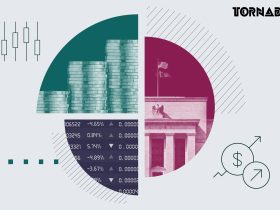Avoid being swindled out of your name, birth date, and other personal information.
Crimes in Midst of Pandemic
According to statistics from the Centers for Disease Control and Prevention, COVID-19 has been reported as the underlying cause of death on over 825,000 death certificates in the United States.
Some criminals are benefitting from COVID-19 by defrauding unsuspecting prey as if the country hasn’t had enough loss, worry, and anguish. Experts have compiled a list of the most typical scams they encounter, as well as tips on how to avoid falling for them.
Cicely Jones, the CEO of MPA Financials in Pleasant Grove, Alabama said fraudsters are deliberately targeting Medicare patients. She also cautioned individuals not to upload a photo of their immunization card online or divulge any personal information.
Fake exams are being sold by certain scammers. Check the list of approved antigen diagnostic and molecular diagnostic tests from the Food and Drug Administration (FDA) before you buy a test.
It’s a red sign, according to financial expert Tae Lee of Birmingham, Alabama, if you get emails or phone calls from a firm promising to assist you to acquire stimulus money or COVID-19 relief loans for a charge, according to the article by Terri Williams posted on Health.com site.
If a phone call doesn’t sound or feel right, Lee recommends against clicking on questionable emails and hanging up as soon as possible. She advises taking a few additional measures even if the source appears to be trustworthy.
She added that you have to verify the company with the Better Business Bureau, check out the company’s social media account, Google the company’s ratings, and look for customer reviews.
Prevent COVID-19 Financial Fraud
Even if the sender looks to be a company, a government organization, or someone you recognize, don’t click on links or download anything from an email you don’t recognize.
In response to an unwanted call, text, or email, do not give personal information such as Social Security, Medicare, or credit card numbers.
Unsolicited calls, emails, texts, or social media communications promoting pandemic-related items, such as quick testing, should not be answered, as published by the AARP news.
Before purchasing tests online, check the Food and Drug Administration’s (FDA) website for a list of approved tests and testing firms.
To identify reliable testing sites, talk to your doctor or check with your local health agency. If you go to a pop-up clinic, look for red signals such as personnel who are unable to communicate.
Read more:
If You Owe Stimulus Money from 2021, You Should File Your Taxes
Things to Know About US Taxes if you Reside in a Foreign Country















Leave a Reply